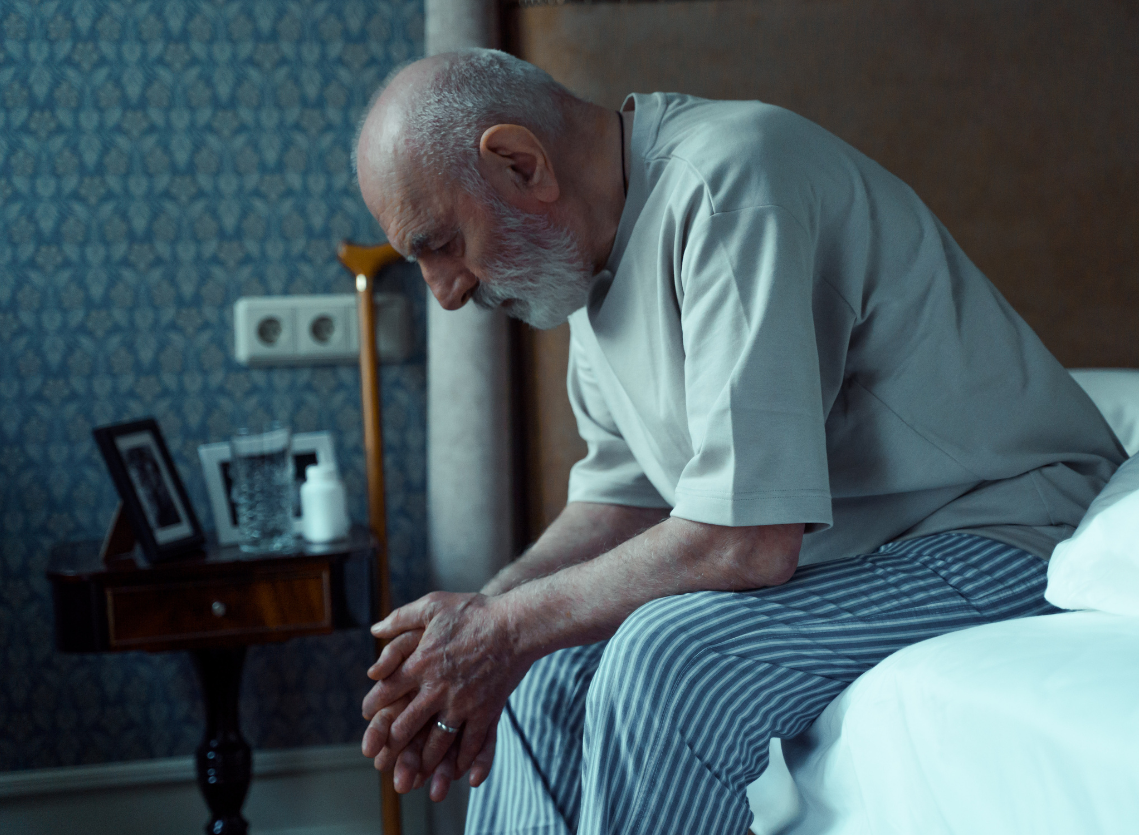Lung cancer diagnosis: Carenity members tell their story
Published Jun 5, 2020 • By Candice Salomé
Being diagnosed with a chronic illness can change a person's entire life. This is the story of Carenity members living with lung cancer.

Survey conducted by Carenity among 205 patients living in the UK, France, Germany, Spain, Italy, and the US.

On average, patients waited 8 months and consulted 2 doctors before reaching their diagnosis.
Yet, a majority of respondents experienced symptoms consistent with lung cancer. Here are the symptoms that alerted them to a problem:
Shortness of breath | Feeling of suffocation | Chest pain | Cough | Fatigue | Sputum
Before receiving proper diagnosis and treatment, lung cancer patients had their daily lives turned upside down by their symptoms. Respondents saw almost every aspect of their daily lives significantly affected their cancer. Chronic fatigue is the most prevalent symptom that keeps them from living as they did before:
 Chronic fatigue - 52%
Chronic fatigue - 52%
 Leisure and physical activity - 48%
Leisure and physical activity - 48%
 Professional life - 51%
Professional life - 51%
 Family life - 40%
Family life - 40%
 Love life - 37%
Love life - 37%
 Social life - 29%
Social life - 29%
 Chronic pain - 27%
Chronic pain - 27%
On the other hand, 79% of respondents were not victims of a misdiagnosis. Their symptoms were well recognized as signs of lung cancer. However, some were diagnosed with the following diseases:
Pneumonia | Asthma | Chronic lung infections | Gastroesophageal Reflux Disease
Misdiagnosis: what patients had to say
"After the confusion with the pneumonia diagnosis, it took some time and too many different tests before I would even consider a biopsy"
"The doctors would just tell me to eat healthier and take stool softeners. My cancer has spread to my liver. So I started having side pains."
"I had pain everywhere. I was told, 'It's osteoarthritis or arthritis!' Since September, I've been coughing a lot. This time I was diagnosed with COPD. After all of that, it turns out it's lung cancer and it has metastasized to my bones"
 Being diagnosed with a chronic illness is life-altering. Getting a diagnosis of a chronic condition can be a different experience for many patients: they may be relieved to have a diagnosis and be able to begin treatment, but they may also see it as frightening and brutal. Most lung cancer patients were expecting to receive such a diagnosis. It should also be noted that 25% of the patients had done some research on the internet beforehand, which may explain this percentage.
Being diagnosed with a chronic illness is life-altering. Getting a diagnosis of a chronic condition can be a different experience for many patients: they may be relieved to have a diagnosis and be able to begin treatment, but they may also see it as frightening and brutal. Most lung cancer patients were expecting to receive such a diagnosis. It should also be noted that 25% of the patients had done some research on the internet beforehand, which may explain this percentage.
![]() It wasn't a shock, I was expecting it - 36%
It wasn't a shock, I was expecting it - 36%
![]() It was brutal - 32%
It was brutal - 32%
![]() It was frightening - 25%
It was frightening - 25%
![]() I didn’t feel anything in particular - 19%
I didn’t feel anything in particular - 19%
![]() I don't remember - 5%
I don't remember - 5%
![]() It was a relief - 4%
It was a relief - 4%
The healthcare professional plays a key role in sharing the diagnosis with patients. Sometimes patients do not feel sufficiently listened to or informed about their condition; others, on the other hand, are grateful to their doctor for having supported them through this moment. For Carenity members with lung cancer, the healthcare professional was an ally. Patients appreciated that their doctor remained calm and empathetic and took the time to explain their illness to them.

56% - The doctor took the time to explain
47% - The doctor was very calm
42% - The doctor was empathetic

13% - The doctor was cold and distant
9% - The doctor didn't seem to care
9% - The doctor went too fast when explaining
7% - The doctor used only scientific jargon
The announcement of the diagnosis: what patients had to say
"I was on vacation. A doctor, whom I had never met before, called me and said, "I am calling on behalf of your doctor to inform you that you have Stage IV lung cancer. You need to see a thoracic surgeon as soon as possible."
"The doctors told me, 'We are very concerned about cancer. So unless we can find something that proves it's not cancer, it is definitely cancer'. I found their way of telling me very disturbing. When I asked them what the alternatives were, they wouldn't even consider them. My aunt once had a fungal infection in her lungs. I still think that could be it."
"We looked at the CT scan image together (the doctor and myself). He pointed to a narrowed bronchus and said that it was not normal, so we continued the examination and concluded that it was a tumor together"
Following their diagnosis, only 18% of patients felt relieved to have been diagnosed, but 60% were determined to fight the disease. In addition, 53% felt anxious, 20% felt angry and 24 % were shocked. Loneliness also weighed on them: 21% felt alone, 7% misunderstood by those around them.

Many thanks to all the participants in this survey! Our Carenity members took the time to share their experience to help other patients get the right diagnosis sooner.
"Doctors need to be more compassionate to their patients when they give this devastating news. Take the time to listen to the patient. I replay the doctor's words over and over in my head."
"I appreciated the doctor's frankness. I think it's the right way to break the news and that's the way all doctors should be with their patients."
"My care was handled very professionally and I felt supported."
"I appreciated the doctor's professionalism and his clarity, but also because that's how I am!"
Do the results of this survey reflect your story? Let's share our experience and discuss together to move things forward!!

 Facebook
Facebook Twitter
Twitter



